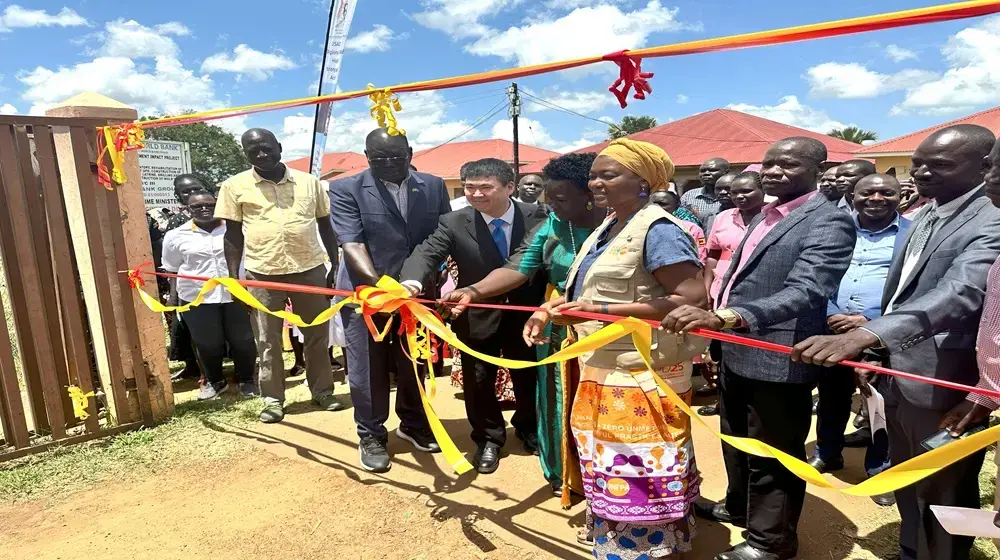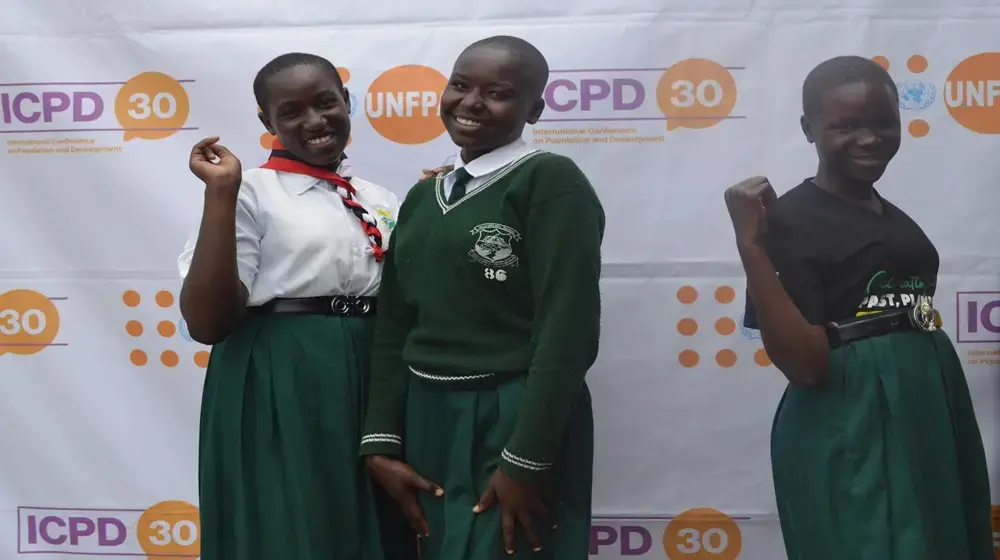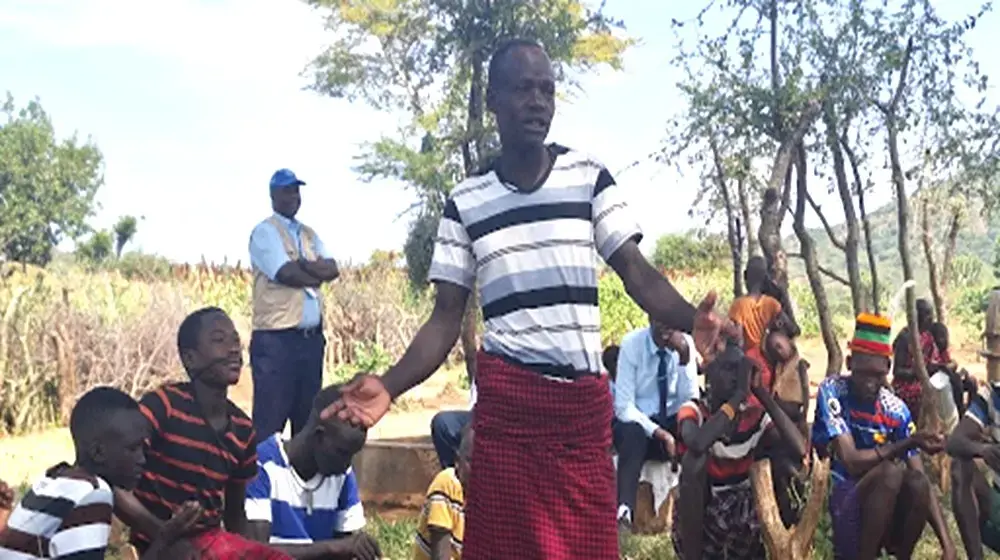KAMPALA, Uganda – Uganda’s “serious problem” of teenage pregnancy requires collective action to prevent and respond to the crisis – and new reports by UNFPA and the Government of Uganda will be critical for national efforts to reduce unintended pregnancies.
This view was expressed by Prime Minister Robinah Nabbanja at the launch in Kampala on Tuesday of UNFPA’s flagship State of World Population report, Seeing the Unseen: The case for action in the neglected crisis of unintended pregnancy, and The Economic and Social Burden of Teenage Pregnancy in Uganda: the Cost of Inaction.
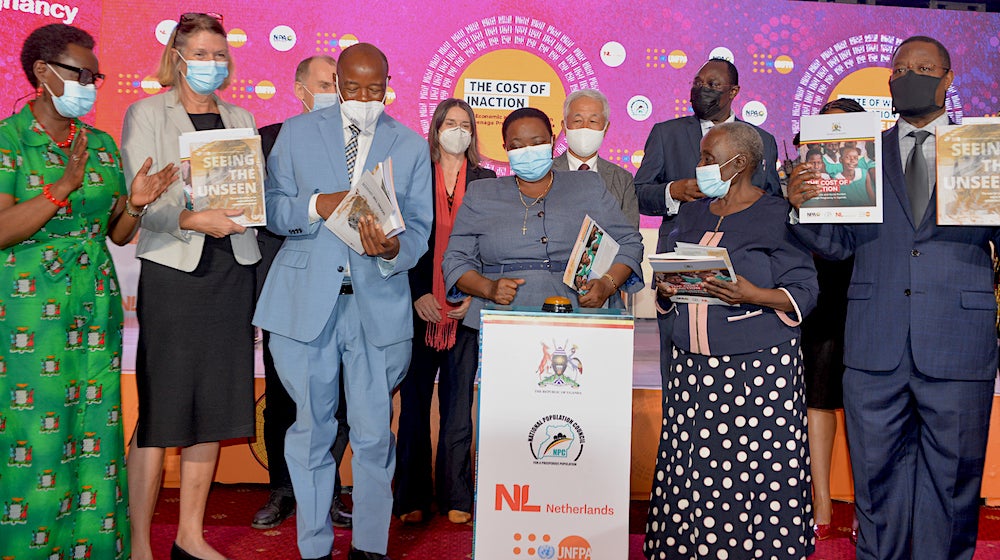
Uganda has one of the youngest populations in the world, with 75 per cent aged below 30 years, and its young population presents opportunities and challenges. “If the right investments are made to ensure that the young people are healthy, properly educated and appropriately skilled, Uganda stands to benefit from them. If we don’t make the right investment, we stand to lose,” she added.
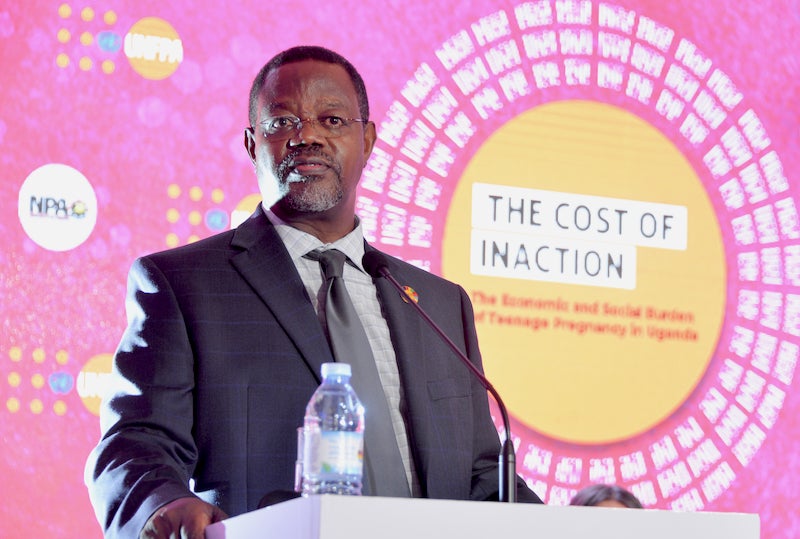
Pregnancy not a choice for half of all women
The State of World Population 2022 report demonstrates that nearly a quarter of all women are unable to say no to sex or make decisions about their own health care, and almost half of all pregnancies worldwide (121 million) are unintended each year. A quarter of women in the region, some 49 million women, and 2 million of them in Uganda, want to stop or delay childbearing but are not using a method of contraception.
In his opening address, Dr. Bannet Ndyanabangi, UNFPA Regional Director for East and Southern Africa called on policy makers and community leaders to prioritize urgent action to address unintended and adolescent pregnancy, to ‘see the unseen’.
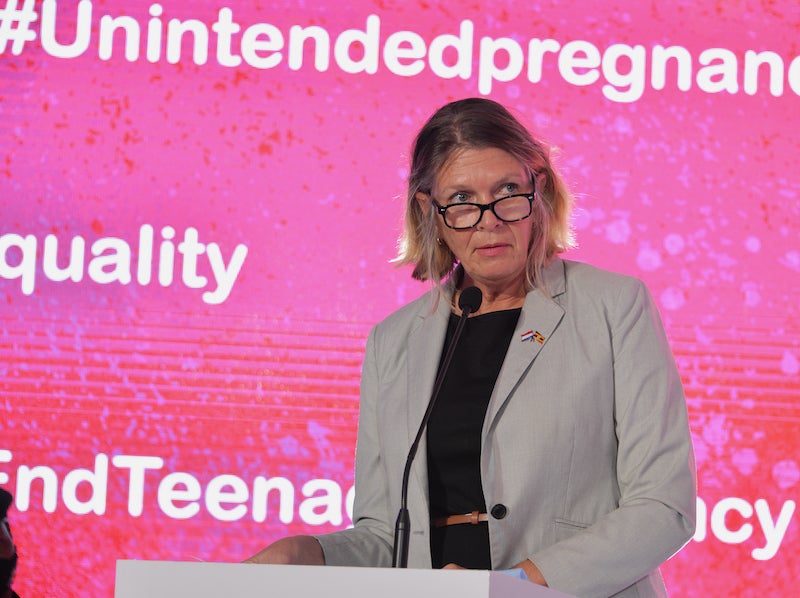
Girls who lack choices and opportunities in life, or who have limited or no access to sexual and reproductive health care, are more likely to become pregnant,” he said. “Unintended pregnancies have serious personal repercussions for the women and girls affected, for their health, education and wellbeing.
Invest in a better future for all
The increased occurrence of teenage pregnancy during COVID-19 is a reminder of the vulnerabilities and inequalities that women and girls face every day in their safety, health and wellbeing, education and economic security, the Ambassador of the Netherlands in Uganda, Karin Boven, said. Each year, more than UGX 645 billion ($182 million) will be spent by the government on health care for teen mothers and the education of their children, the Cost of Inaction report states.
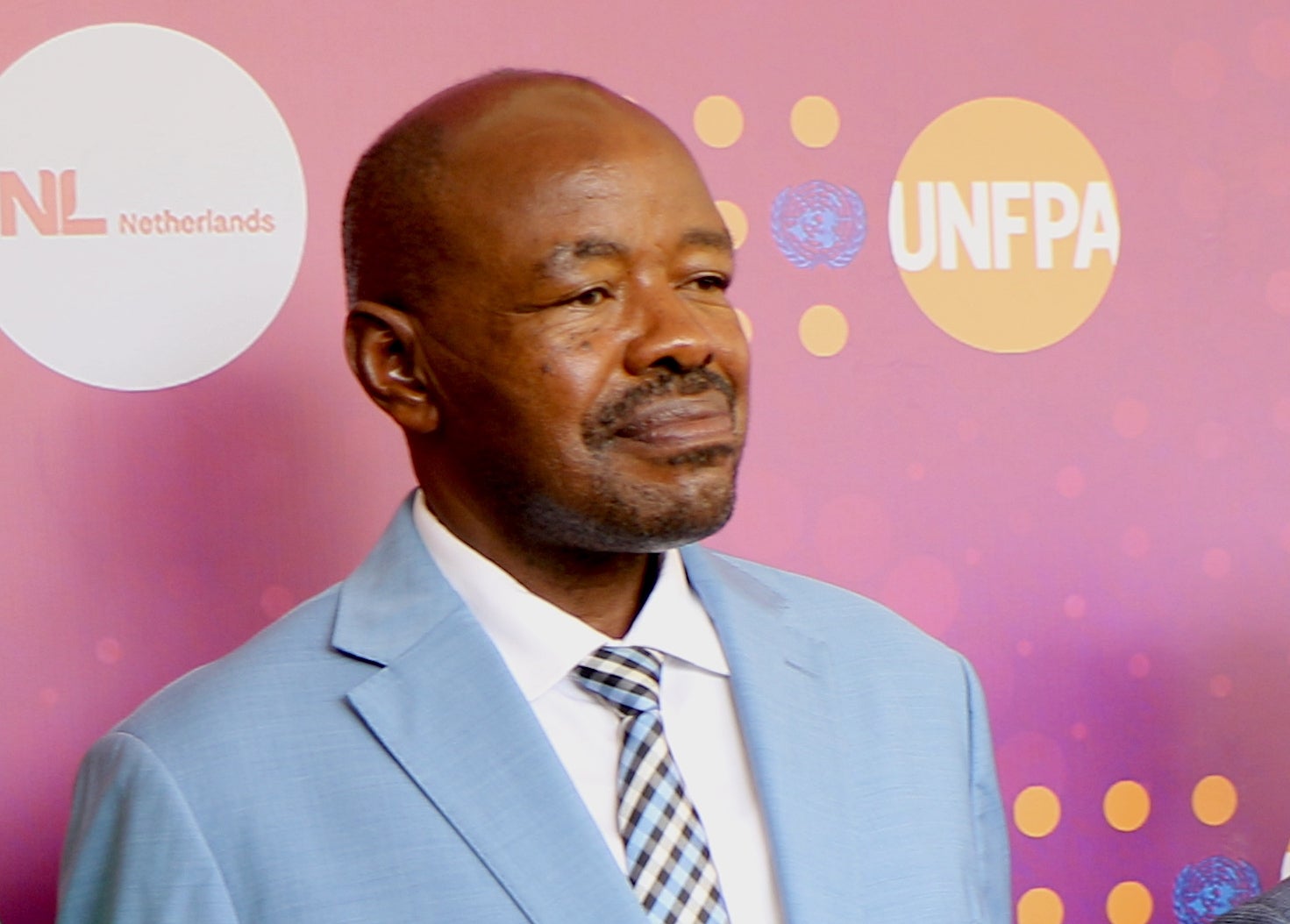
Teenage pregnancies decrease household incomes and jeopardize the country’s strategy for achieving a demographic dividend, which is built around adolescents and young people being healthy, educated and skilled to contribute to the economy, the Minister of State Planning, Amos Lugoloobi, stated.
“If no action is taken, more girls will get pregnant and die in childbirth. More girls will not complete their education. Government expenditure on health care for teen mothers will more than double. We must step up the challenge of addressing teen pregnancies and preach the gospel of ending child marriage. Convince parents to give girls an equal chance at school and an education,” he urged.
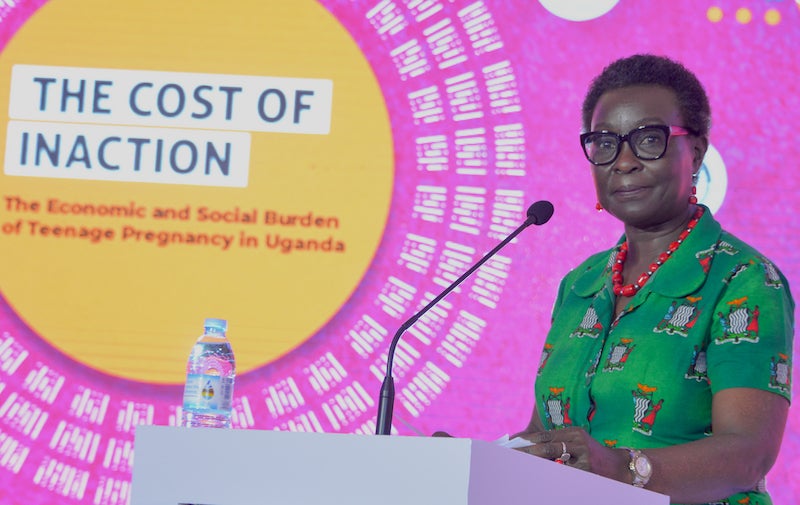
Data to ensure no one is left behind
Data and statistics are vital for evidence-informed policies, plans and budgets, said Dr. Mary Otieno, UNFPA Representative for Uganda, speaking on behalf of UN Resident Coordinator Susan Ngongi Namondo. “Unless we complete the unfinished business of the ICPD (International Conference on Population and Development) Programme of Action and realize the investment case for ensuring sexual and reproductive health and rights for all, and for girls’ and women’s empowerment and gender equality, reaching the ambitious SDGs by 2030 will be difficult, if not impossible.”
On achieving a demographic dividend for Uganda, she advised that keeping girls in school longer and empowering them with the right information to make the right reproductive choices to delay onset of childbearing is a key strategy. “The burden of teen mothers and their children is with us, and we need to act together, be accountable and ensure no one is left behind,” she said.
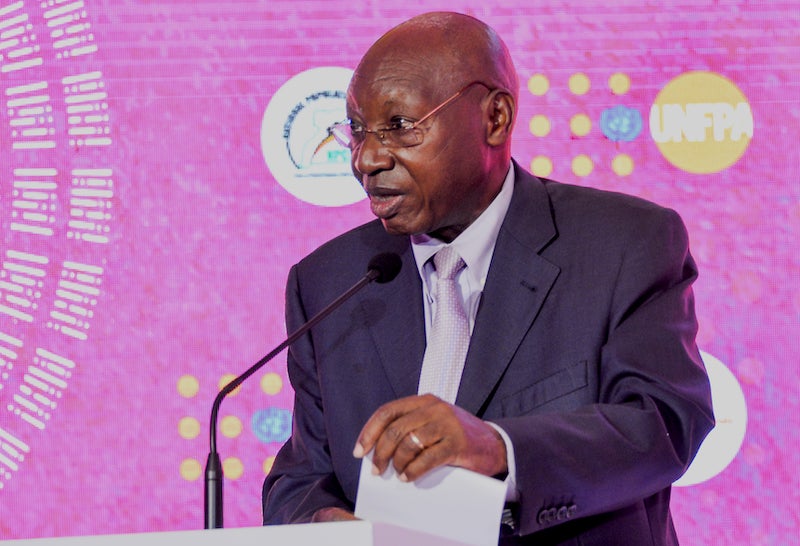
Dr. Jotham Musinguzi, Director-General of Uganda’s National Population Council, agreed teenage pregnancy was a barrier to the nation’s quest for a demographic dividend. The teen pregnancy rate is high and rising – more than 30,000 teenage girls became pregnant each month in 2021 (over 1,000 daily), including about 250 children under 15 – mostly due to sexual abuse or coercion. Just 5 per cent of teen mothers are employed in professional occupations.
In a panel discussion on the socio-economic burden of teenage pregnancy, the speakers discussed study findings that showed most girls who get pregnant don’t get a second chance at education, hence the need for an education re-entry programme.
“As religious leaders, we strongly believe child marriage, which leads to teenage pregnancy, is a human rights violation that robs a girl of her childhood and denies her opportunities to determine her future, and contributes to an intergenerational cycle of poverty,” said Sheikh Muhammad Ali Waiswa, Second Deputy Mufti of Uganda. “In our view, the beginning of a marriage for a child is often the end of an education. Whereas marriage can wait, education never can.”
The close link between teenage pregnancy, gender-based violence, economic vulnerability and gender inequality was highlighted, as well as the significant bottlenecks for survivors of sexual and gender-based violence in accessing justice.
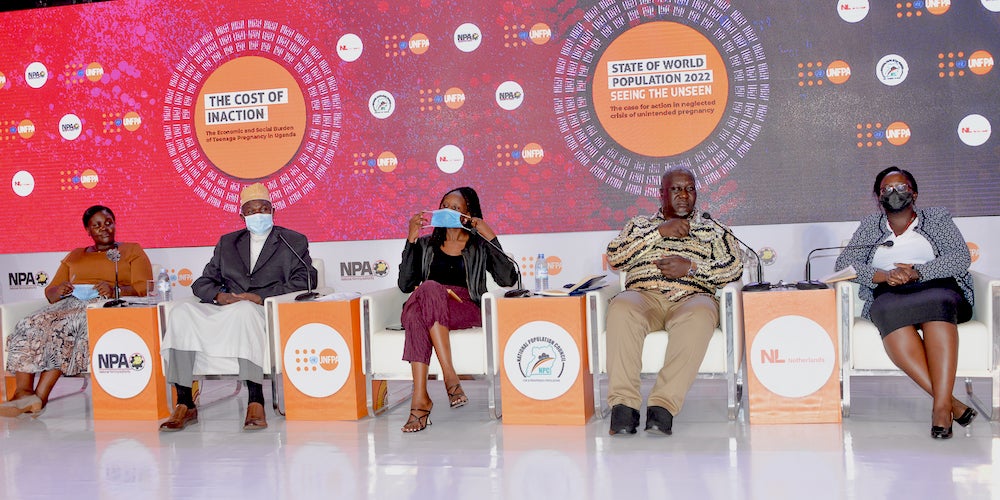
Strategic collaboration between religious institutions and government needs to be strengthened to end teenage pregnancy and child marriage, while young people have a role to play in advancing their peers’ ability to exercise agency and access sexual and reproductive health and rights.
“What should be done to promote unintended pregnancies, particularly to fight child marriage and teen pregnancy?” asked Daisy Kandole, a youth advocate for sexual and reproductive health and rights for young people. “Meaningful participation of young people – youth-friendly services and information, being there for young people in our different capacities, and using a multisectoral approach.”


